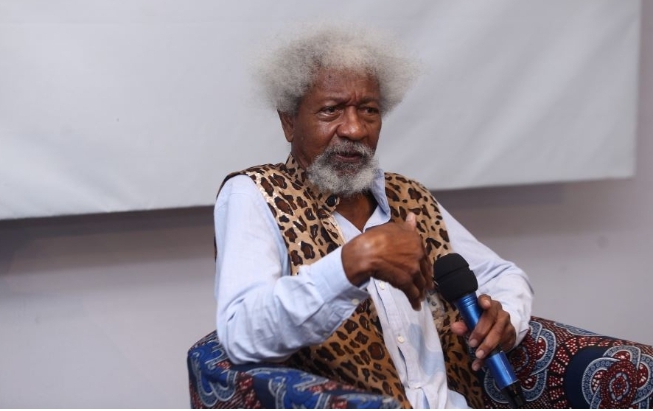In a recent interview with Turkish journalist Aysegul Sert in Paris, Nobel Laureate Professor Wole Soyinka shared his remarkable insights on life, creativity, and the delicate balance between activism and writing.
Soyinka was asked what keeps him youthful and active at the age of 89.
His response was both intriguing and revealing. “I have no idea,” he sighed.
“I should be slowing down, I know, but each time I try to slow down, something happens, and I have to get on the trail again.”
This perpetual drive to keep moving, to keep exploring, has been a cornerstone of Soyinka’s enduring creativity.
He finds it difficult to turn his back on any situation, fearing the loss of inner tranquility that accompanies it.
“You see, I am deprived of that sense of inner tranquility once I turn my back on a situation,” he confessed.
“Quite frankly, I think it’s a flaw because I am depriving myself of something which I know I need profoundly.”
However, Soyinka has a strategy for preserving his sanity amidst the chaos of the world – he calls it “extracting myself from the world.”
He emphasizes the importance of finding moments of quiet within his mind.
“If I didn’t manage to have some quiet in my mind, I’d have gone crazy years ago, so it’s a question of extracting myself [from the world] whenever I can.”
This extraction involves sacrificing some of life’s pleasures, as he explains, “You have to battle for your creative space, battle for it! Extract yourself whenever you can and be thankful for it, and just carry on waiting for the next opportunity to gratify your innermost instinct to disappear, and do not sacrifice it.”
Soyinka acknowledges the challenge of balancing his activist spirit with his writing. He shares his view on this delicate equilibrium:
“If you can manage to balance the two [the activism and the writing], that’s OK, but if you find that you are being tortured internally, then be quiet, just close the shop, run and go.”
He expresses a strong preference for peace of mind and tranquility, often found in the serene environment of the forest.
“I know it’s unbelievable, but I really just prefer my peace of mind; I like to sink myself in a truly tranquil environment, which I find mostly in the forest.”
When questioned about whether he ever intended to be a committed writer, Soyinka responds with a resounding “No.”
He elaborates on the role of a writer, highlighting the importance of presenting a different view and opening up possibilities.
“The fact is that something is being presented, a different view is presented, that’s what matters. The writer must be honest,” he asserts.
Soyinka encourages writers to follow their own temperament and instincts, emphasizing that writing is a mission and an art. “Exploit it in whatever direction it leads.”










